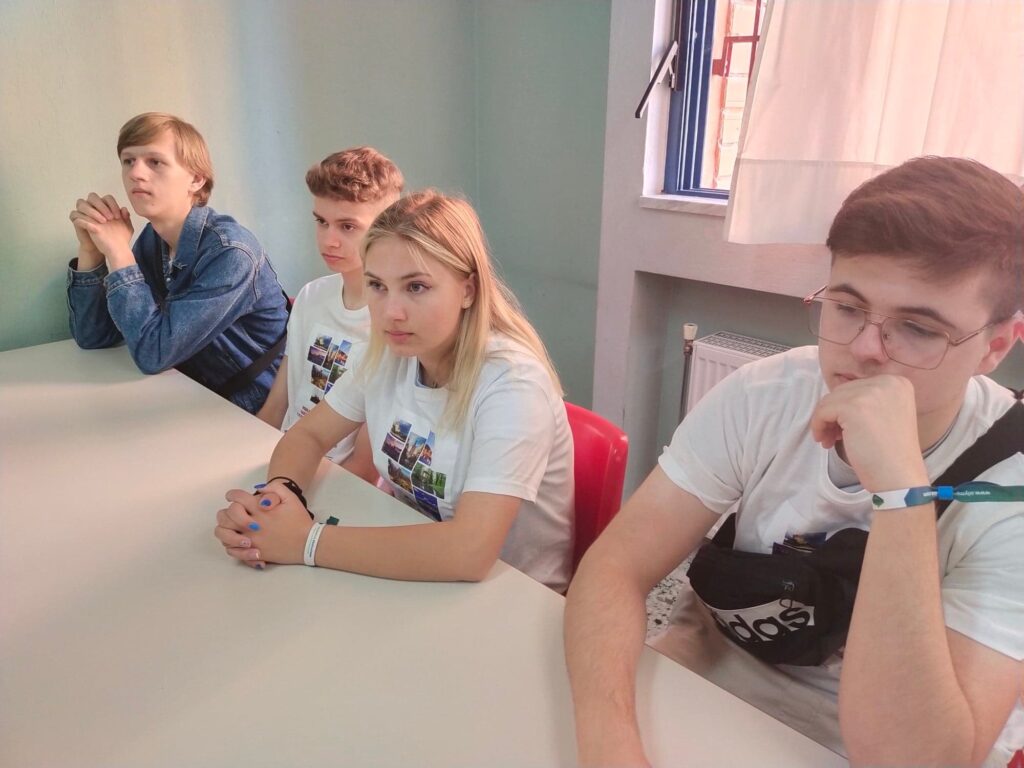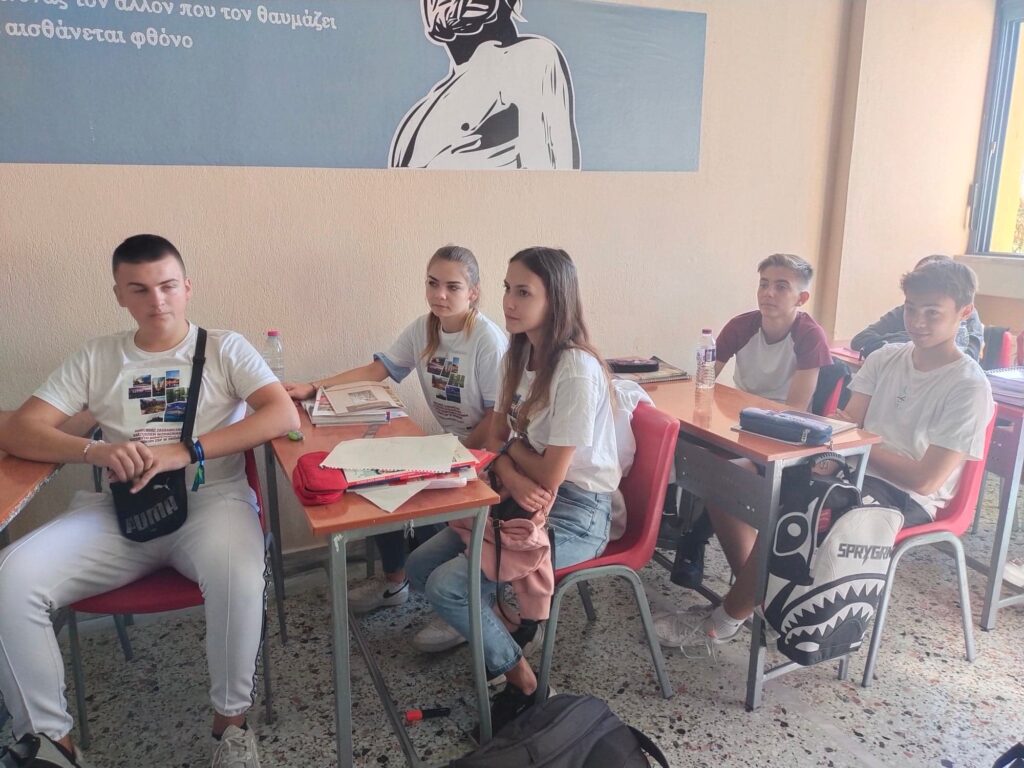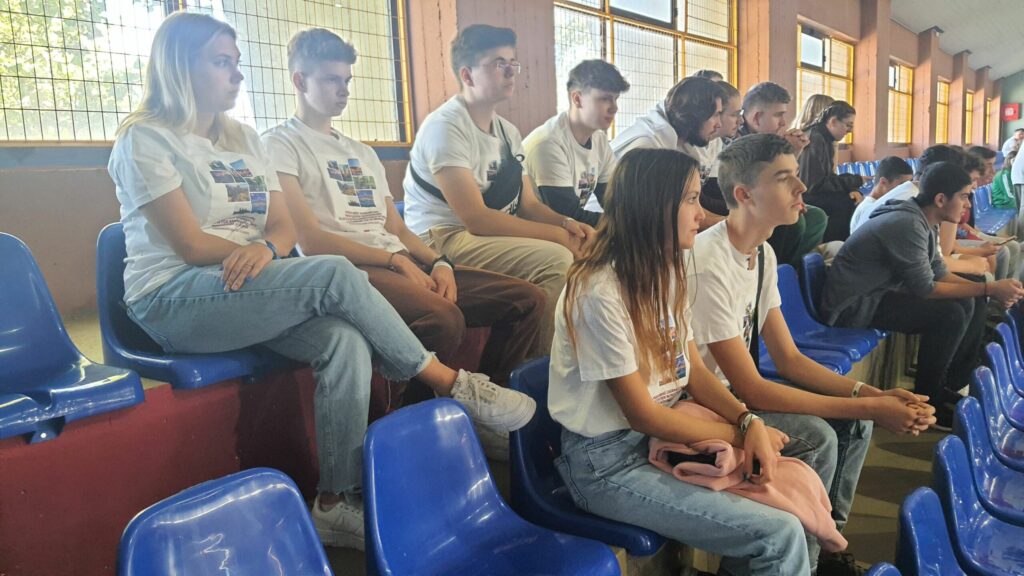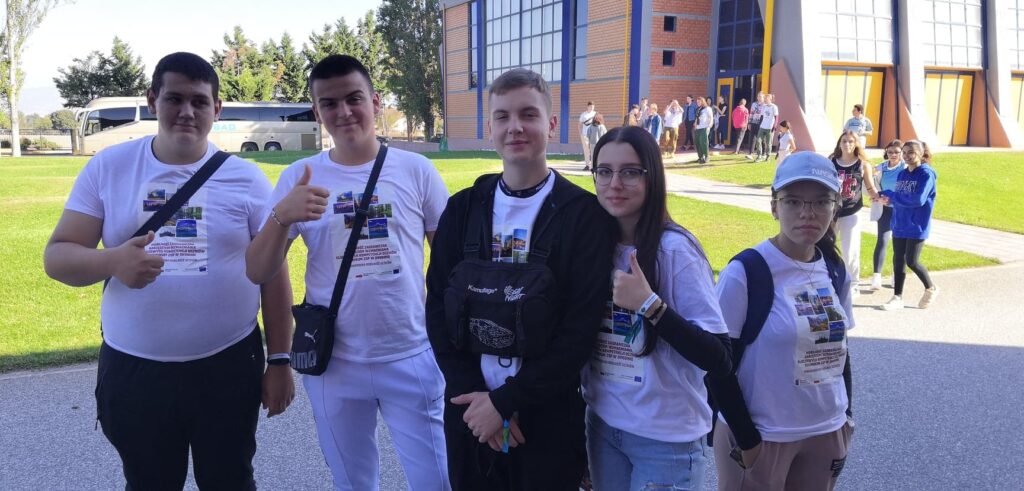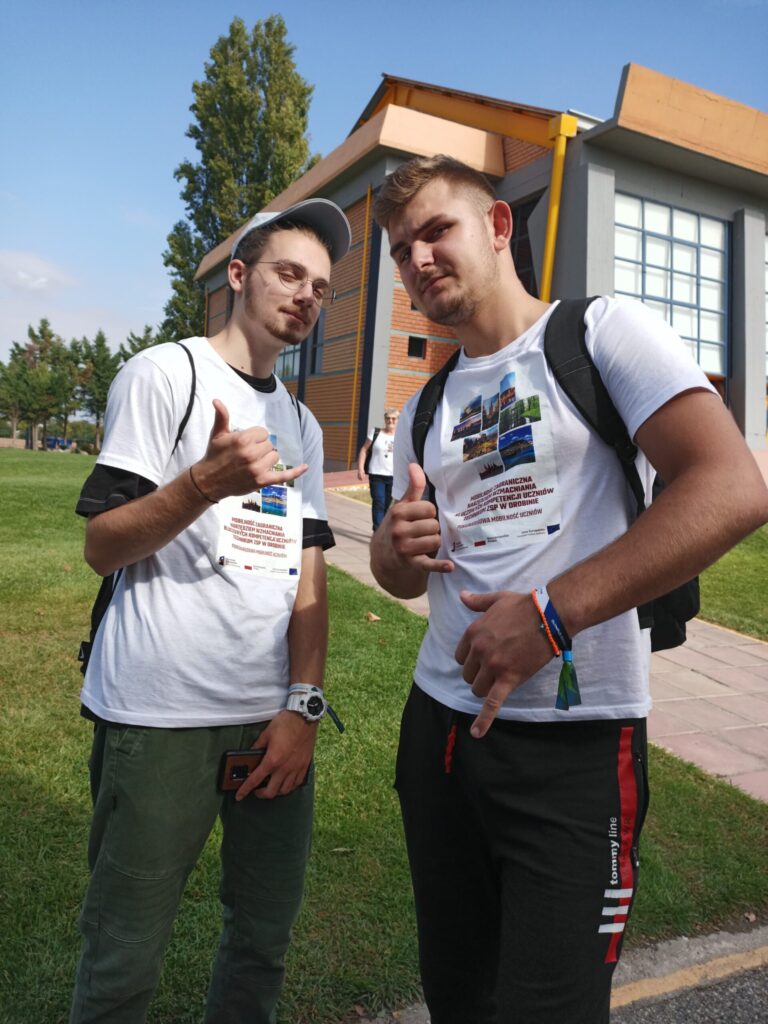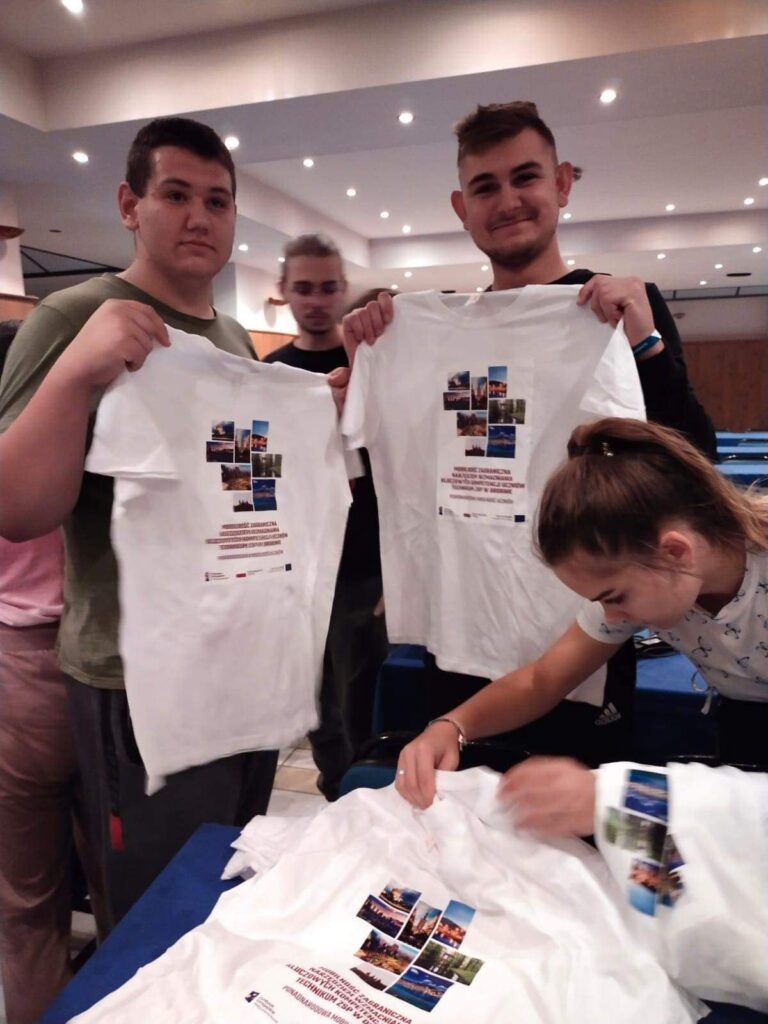
The most important information about the project “Foreign mobility as a tool for strengthening the key competences of students of the Technical Secondary School in Drobin”
The Secondary School Complex in Drobin is implementing a project called “Foreign mobility as a tool to strengthen the key competences of students of the ZSP technical school in Drobin”. The initiative is carried out as part of the project “Transnational mobility of students”, implemented from the European Social Fund under the Operational Program Knowledge Education Development, Priority Axis IV Social innovations and transnational cooperation, Measure 4.2. Transnational mobility programs. The total value of funding that the School received for this purpose is PLN 169,530.
The main objective of the project is to strengthen the competences of key mobility participants, especially digital, linguistic, in the field of understanding and creating information, cultural, personal, social awareness and expression and learning. The specific objectives include:
a) Acquiring practical skills of participants in the digital area and marketing, which, on the one hand, are expected by employers, and on the other hand, are included in the core curriculum for each of the fields of study participating in mobility
b) Increasing the competences and increasing the skills and experience of the teaching staff involved in the activities
c) Making the educational offer more attractive by introducing innovative educational methods and tools supporting learning and monitoring learning outcomes
d) Development of the School’s competences and experience of the management staff in the field of international cooperation
e) Improving the level of interest of students in general education, improving the results of the secondary school-leaving examination, increasing the number of students taking the secondary school-leaving examination
f) Strengthening involvement in education and school life, increasing students’ motivation to learn languages and achieve better learning results
g) in the long term – continuation of building European experience and cooperation in the post
h) increase in the level of general education in the institution
i) increasing the motivation of the school staff to increase professional competences and knowledge, as well as providing tools supporting this goal, including through the accumulation of knowledge, skills and good practices as part of projects and making them available as part of self-education in the institution.
As part of the project, a two-week mobility to Greece was carried out, which took place on October 2-15, 2022. The trip will be attended by 20 students selected in the recruitment process, as well as 3 representatives of the teaching staff as guardians and mentors. The partner institution in the project is Mpakogianni Private School in Larisa. The partner school held substantive classes in the project, the subject of which is devoted to the promotion of regions with the use of modern technologies and Internet tools. Students in Polish-Greek groups worked, among others, on on professional websites aimed at the international community. The substantive classes in the project are scheduled for 10 days. The next 2 are the implementation of the cultural program – trips around the Olympic Riviera. Animations and trips were also carried out on free afternoons or mornings. It took 2 days to travel by bus on the routes Poland – Greece and Greece – Poland.
Participation in the project is free for students.
Official poster

Poster of the mobility

Summary of the mobility in the project
SUMMARY OF MOBILITY IN THE PROJECT “FOREIGN MOBILITY AS A TOOL FOR STRENGTHENING KEY COMPETENCES OF STUDENTS OF THE TECHNICAL SCHOOL OF ZSP IN DROBIN”
Mobility in the project “Foreign mobility as a tool for strengthening the key competences of students of the ZSP technical school in Drobin” is behind us. The foreign trip in the initiative took place on October 2-15, 2022. It was attended by 20 students from classes II and III, as well as 3 representatives of the teaching staff. The duration of the trip consisted of: 10 days of the program implementation, 2 days for trips and 2 days of bus travel on the route Poland – Greece and Greece – Poland. Mobility turned out to be a source of endless impressions for us, and above all, new knowledge and competences, which we strengthened in an international environment under the supervision of mentors.
Implementation of the substantive programme
The most important part of the trip was, of course, cooperation with the host school and substantive activities in the project. Since the experiences of May mobility are behind us, this time the first visit to Mpakogianni Private School was not associated with such stress. The students, a bit nervous, were looking forward to meeting the Greek youth!
Our first visit to the host school was devoted primarily to the introduction to the project and getting to know each other. After reaching the headquarters of the institution in Larisa, the students were greeted by the Greek coordinator, Mrs. Evangelia, and other teachers involved in the project. Then there was a short “tour” – we visited a large complex of institutions, and the Greeks told us what everyday life looks like in Mpakogianni. In this way, we could learn much more about what education in Hellas looks like, including what subjects and skills are emphasized, what exams young people have to take, how they see their future … Students studying in Mpakogianni often decide to for further studies not only in Larisa, but also in Thessaloniki and even at foreign universities. Therefore, special care is taken here to learn foreign languages, as well as to shape competences related to building responsibility for one’s own development. What can we envy Greek students? Certainly a long holiday! These start earlier and end later than in Poland. However, there is a catch in this … that is, for example, the fact that preparation for final exams in Greece often takes place during the holiday months.
After the school tour, we went to the lecture hall. Here, teachers from Poland and Greece presented a detailed mobility program and expected results. This acquaintance with the “schedule” greatly facilitated the further planning of the students’ work, who were to take part of the responsibility for the progress during the mobility and the final results within the task teams. Later, the group was divided into smaller groups and the first tasks were assigned to the young people, which we were supposed to work on.
Subsequent meetings at school took place in a very friendly atmosphere. Of course, the main part of the stay at Mpakogianni Private School was related to work on the project products and substantive introduction, for which mentors were responsible, but there was also time for more… recreational parts! During integration classes with Greek youth, we had the opportunity to take part in sports activities and creative workshops. We even played Polish-Greek matches, but we will keep their result secret. The time together was valuable for us – then we could make friends in a less formal atmosphere than during classes, which was crucial for overcoming language barriers.
An important part of the meetings, also from the perspective of the subject of the project, were presentations on Greece and Poland, prepared by young people. Why is it so important? The developed materials are real pills of knowledge about the countries and regions from which the participants come, and additionally, the fact that they were prepared by students made it possible to look at these places and their potential development from the perspective of young people.
The computer classes themselves were related to the main thematic area of the project – designing websites. Among the issues addressed were:
- good and bad design practices. Based on the prepared presentation with examples, the mentors talked about what is especially worth paying attention to when planning the content, appearance and functionalities of the website
- accessibility for people with disabilities based on WCAG guidelines
- SEO – how to build pages and write texts to be visible in search engines, and thus to effectively reach Internet users
- use of WordPress and Elementor content management plugin
- graphic design of websites and creating sitemaps using MIRO
- creating graphics for the website and for other media using Canva
During the next classes, we developed content for our websites, using the information obtained thanks to mentors – as well as developing materials that we managed to collect thanks to research, trips and visits. As part of the task groups, students exchanged roles so that everyone had the opportunity to verify their strengths, weaknesses and predispositions.
The last meeting at the school was devoted to a solemn summing up ceremony. Then the participants received certificates confirming participation in the project. The groups presented the effects of their work, and the mentors were responsible for evaluating the designed pages. In addition, students from Poland prepared a surprise – a presentation summarizing the entire trip, where, apart from a lot of factual information, there were also humorous elements.
Additional workshops
The mobility program has been designed in such a way as to enable participants to increase their personal potential as much as possible, i.e. knowledge, competences and skills – but also to allow them to test themselves in completely new roles and try something they have not known before. Among such elements are:
- dance lessons with a professional instructor
- acting classes, during which we prepared scenes and practiced stage movement
- film classes, during which young people had to prepare and assemble professional materials devoted to one of the attractions they visited
- Muay Thai training, or Thai boxing.
Outdoor activities
Already during the mobility in the Erasmus+ project, we have seen how many benefits are brought by non-standard forms of increasing students’ competences, especially those in which we can also strengthen their independence and sense of responsibility. Therefore, a number of outdoor activities and city games were conducted for young people this time, including in Platamonas, Leptokarya and Old Panteleimon. What were the tasks? These were very different. Starting from obtaining information thanks to elements of urban space, through interviews with residents, to producing a videoblog… This form of activity also appealed to young people. The films edited by the participants were even officially screened during the Greek Oscar evening.
Excursions and animations
Be in Greece and not use this time to discover the charms of Hellas? Unlikely! As part of the mobility, the project provided for two days for the cultural program, and in addition, the participants also used their free time after classes for sightseeing and trips. The places visited include:
- historic monasteries on the tops of rocks, i.e. Meteora, inscribed on the UNESCO World Heritage List
- the island of Skiathos, to which a cruise full of surprises was made
- Dion, where you can see the Museum and the archaeological site with its impressive amphitheatre
- Castle of Platamonas
- Litochoro and Olympic National Park
- Museum in Gonnoi, dedicated to the folk roots of Thessaly
- Tembi Valley.
The project “Foreign mobility as a tool for strengthening the key competences of students of the ZSP technical school in Drobin” is implemented thanks to the funds obtained from the European Social Fund under the Operational Program Knowledge Education Development.




